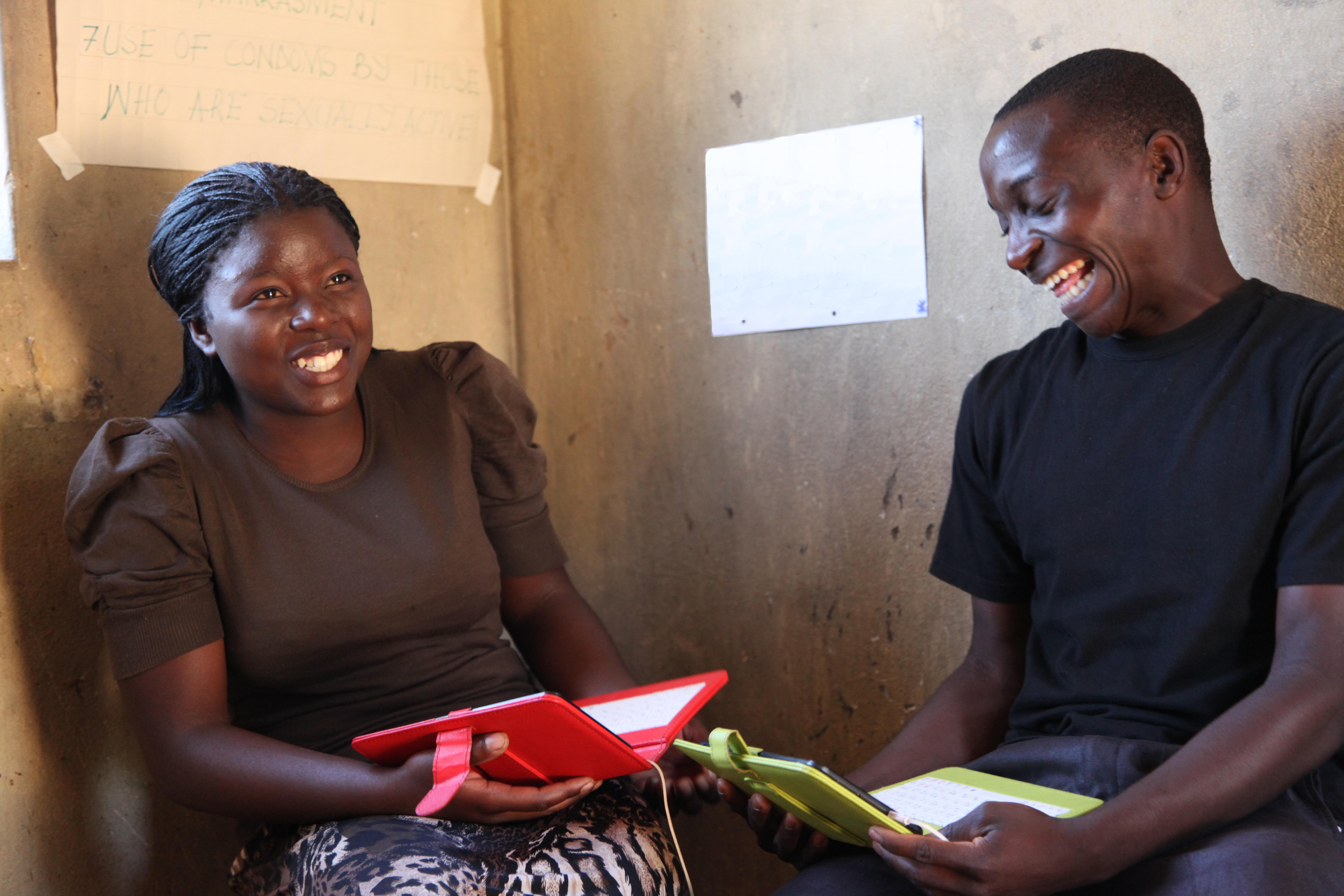HURUNGWE DISTRICT, Mashonaland West, Zimbabwe – At a local clinic, a young man emerges from the waiting room holding a brightly coloured mobile tablet. Tafadzwa Chamonyonga, 19, is a peer educator from Hurungwe District in Mashonaland West Province, 200 kilometres north west of Harare, Zimbabwe’s capital.
Taffie, as he is known among his peers, is one of 100 young people who have received information on adolescent sexual and reproductive health issues and has been trained in social media by UNFPA, the United Nations Population Fund's Safeguard Young People Programme.
The 10 days we spent training in Kadoma opened our world to a new perspective on how to live our lives and behave as young people.
“The 10 days we spent training in Kadoma opened our world to a new perspective on how to live our lives and behave as young people,” says Taffie. “There is the real value of social media in sharing information and knowledge. We cannot wait to recruit other youths into the network.”
Already he has reached out to his immediate peers and their response has been encouraging. “Ever since we came from the training, I have introduced some of my friends to social media and they have all expressed great interest.”
'Reach young people on their phones'
What better way to reach youth with messaging on adolescent sexual and reproductive health than on social media platforms?
His sentiments are echoed by Nofundo Mlilo, 17, another peer educator who received training in social media along with Tafadzwa. “Most of the time we young people are on our phones, so what better way to reach us with messaging on adolescent sexual and reproductive health (ASRH) than on social media platforms?”
The keen interest shown in social media by her peers is promising and she is looking forward to engaging with more youths in her community and fostering behaviour change, she says.
According to Tamisayi Chinhengo, UNFPA Programme Specialist in ASRH, social media is one of the key platforms identified to provide information on sexual and reproductive health to young people.
“As part of the National ASRH Network, UNFPA and its partners seek to exploit social media to empower adolescent girls to make healthy reproductive health choices and to act on them, strengthen youth-friendly SRH services and enhance the accountability of health providers to young women on provision of youth-friendly services,” she says.
Young people face unique challenges
Zimbabwe's population is close to 13 million people, of which two thirds are below the age of 25 years. Young people, especially young women, face a unique set of challenges in accessing SRH services and are exposed to the risks of unintended pregnancies, unsafe abortions and sexually transmitted infections, including HIV. Lack of employment and gender-based violence exacerbates the situation. According to the 2012 national estimates, HIV prevalence is one and half times higher among women aged 15 to 24 (6.7 per cent) than among men the same age (4.2 per cent).
The SYP-supported training emphasizes the use of social media as a key emerging strategy in adolescent sexual and reproductive health information generation and knowledge sharing among young people in their communities through Facebook Clubs. This is in association with government partners in the Ministry of Health and Child Care, National AIDS Council, Zimbabwe National Family Planning Council and youth organizations such as the Young People’s Network-Get Engaged and SAYWHAT.
About the Safeguard Young People programme
With funding from the Swiss Agency for Development and Cooperation, UNFPA's East and Southern Africa Regional Office has implemented the Safeguard Young People programme in Botswana, Lesotho, Malawi, Namibia, Swaziland, South Africa, Zambia, and Zimbabwe. The programme displays bold leadership and strategic action to ensure young people’s healthy and successful transition to adulthood.
The goal of the programme is to improve the sexual and reproductive health status of young people aged 10 to 24 years by the end of 2019. The Safeguard Young People programme adopts a multi-sectoral approach that addresses the youth population holistically, in their diverse and complex environments, with an emphasis on transforming the gender dynamics that marginalize and harm young women.



